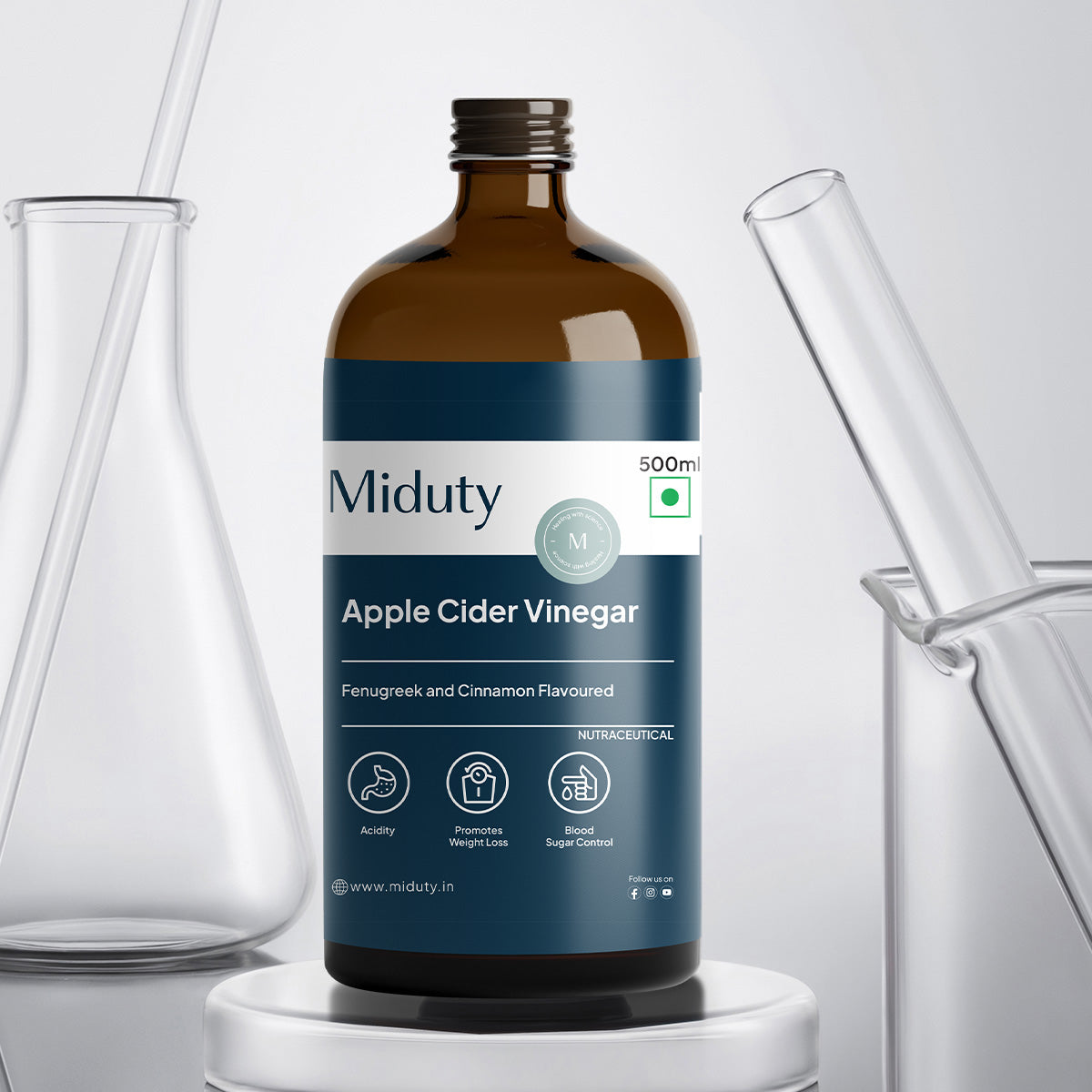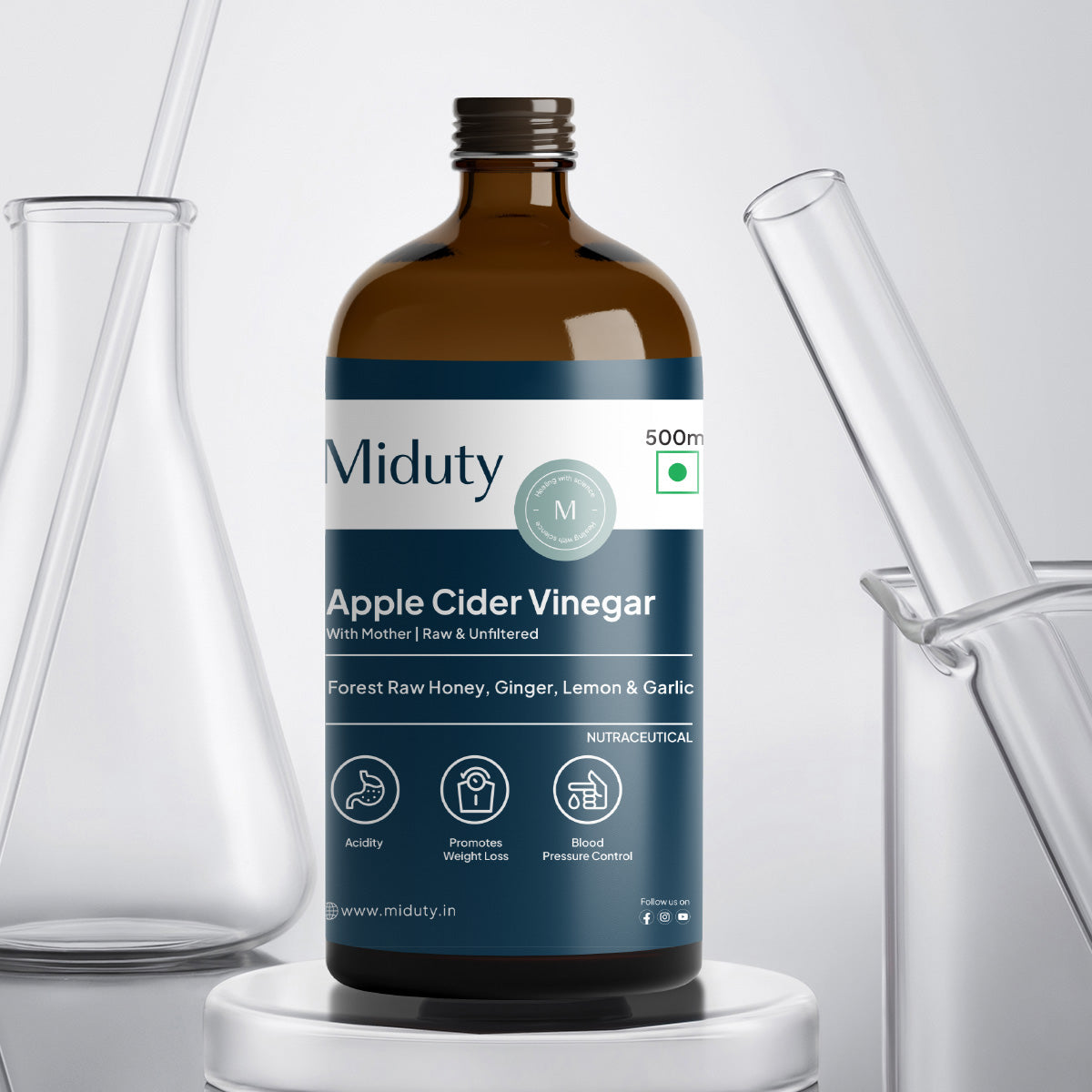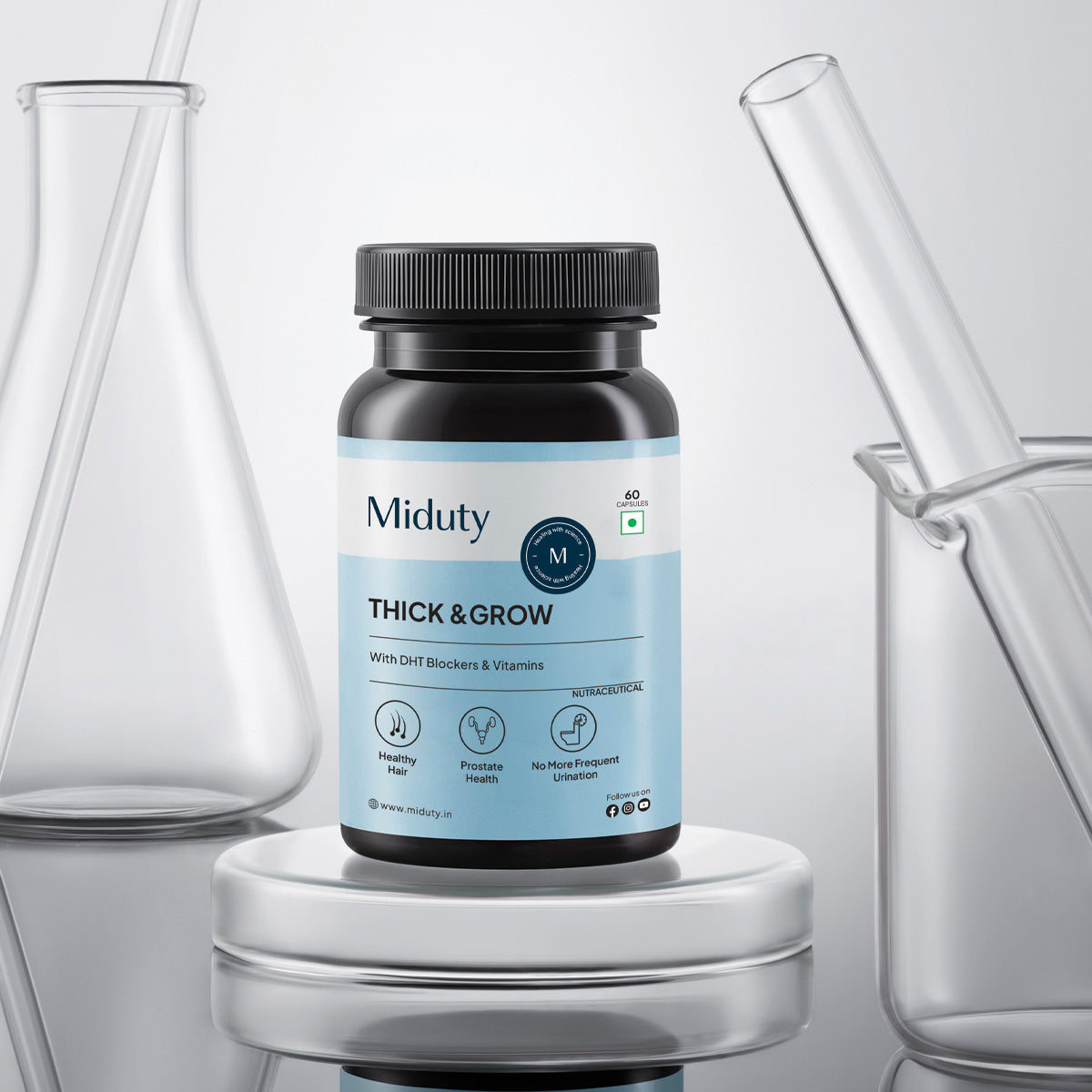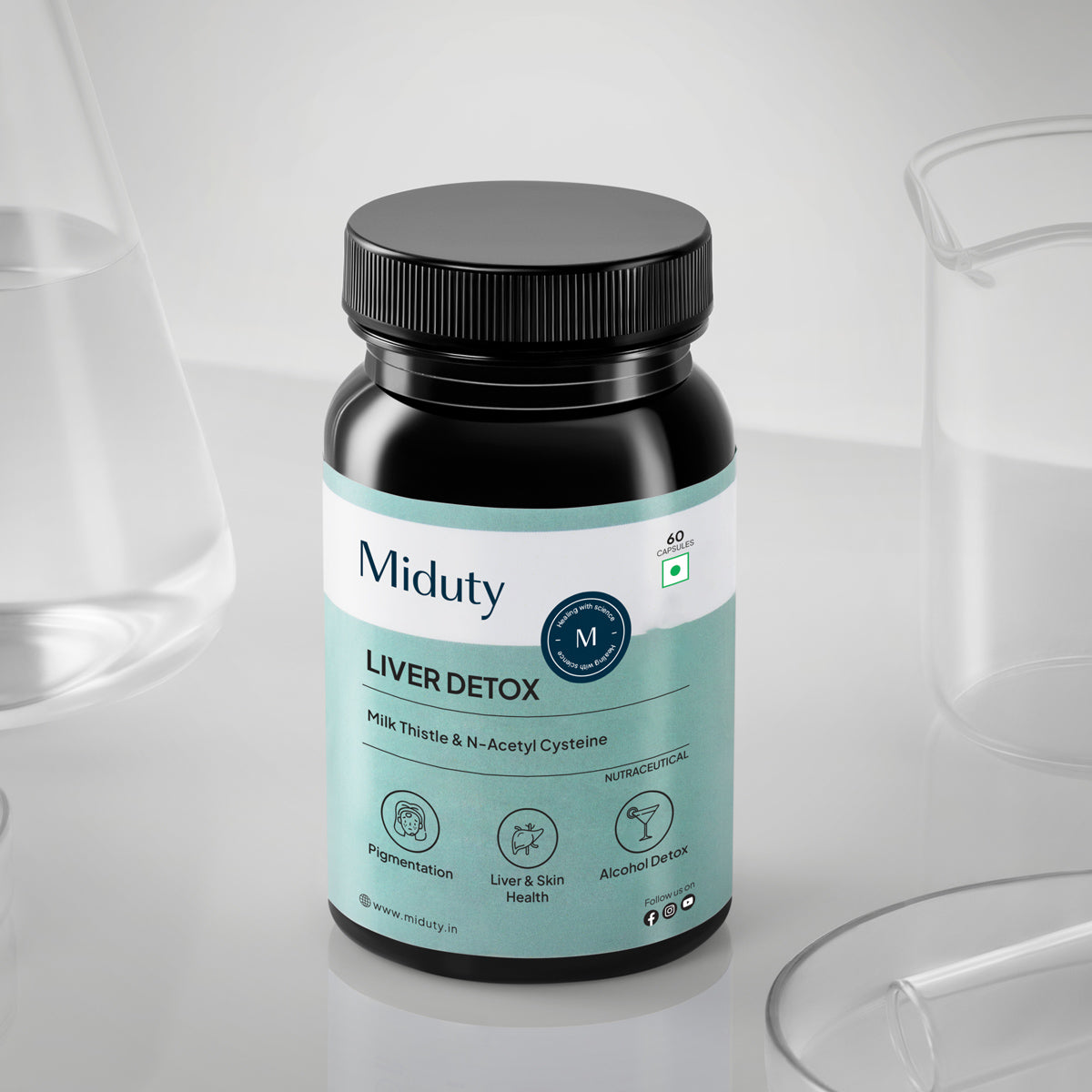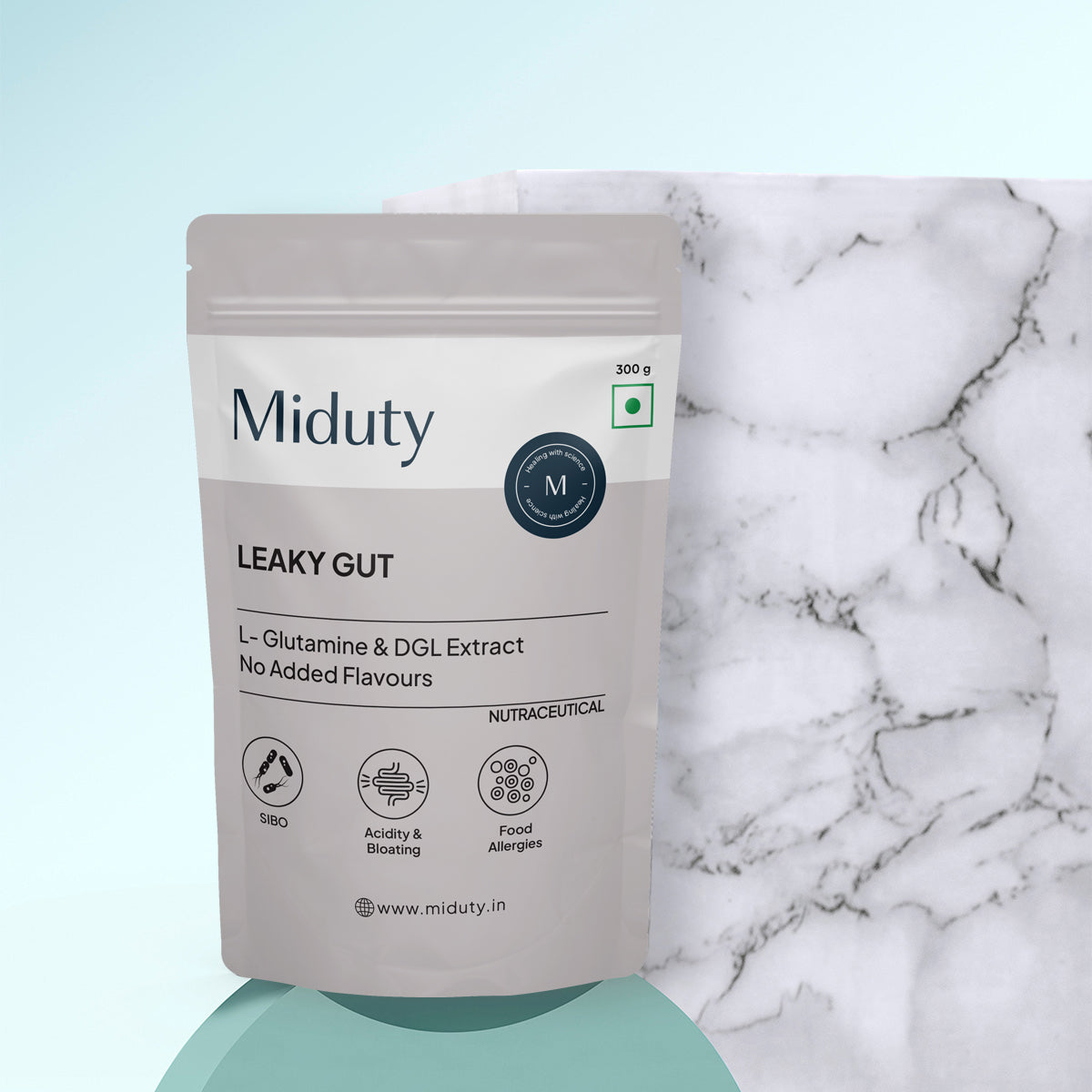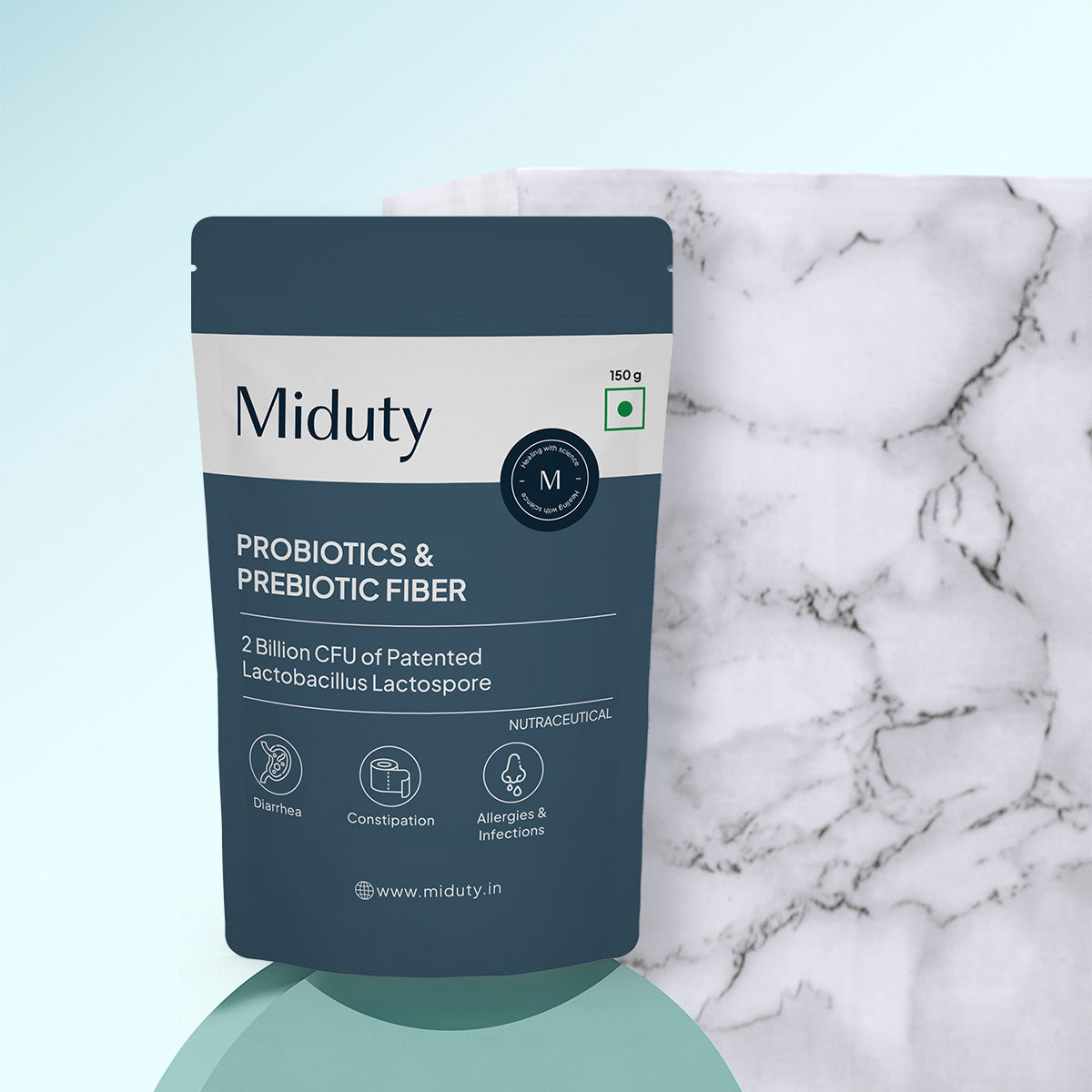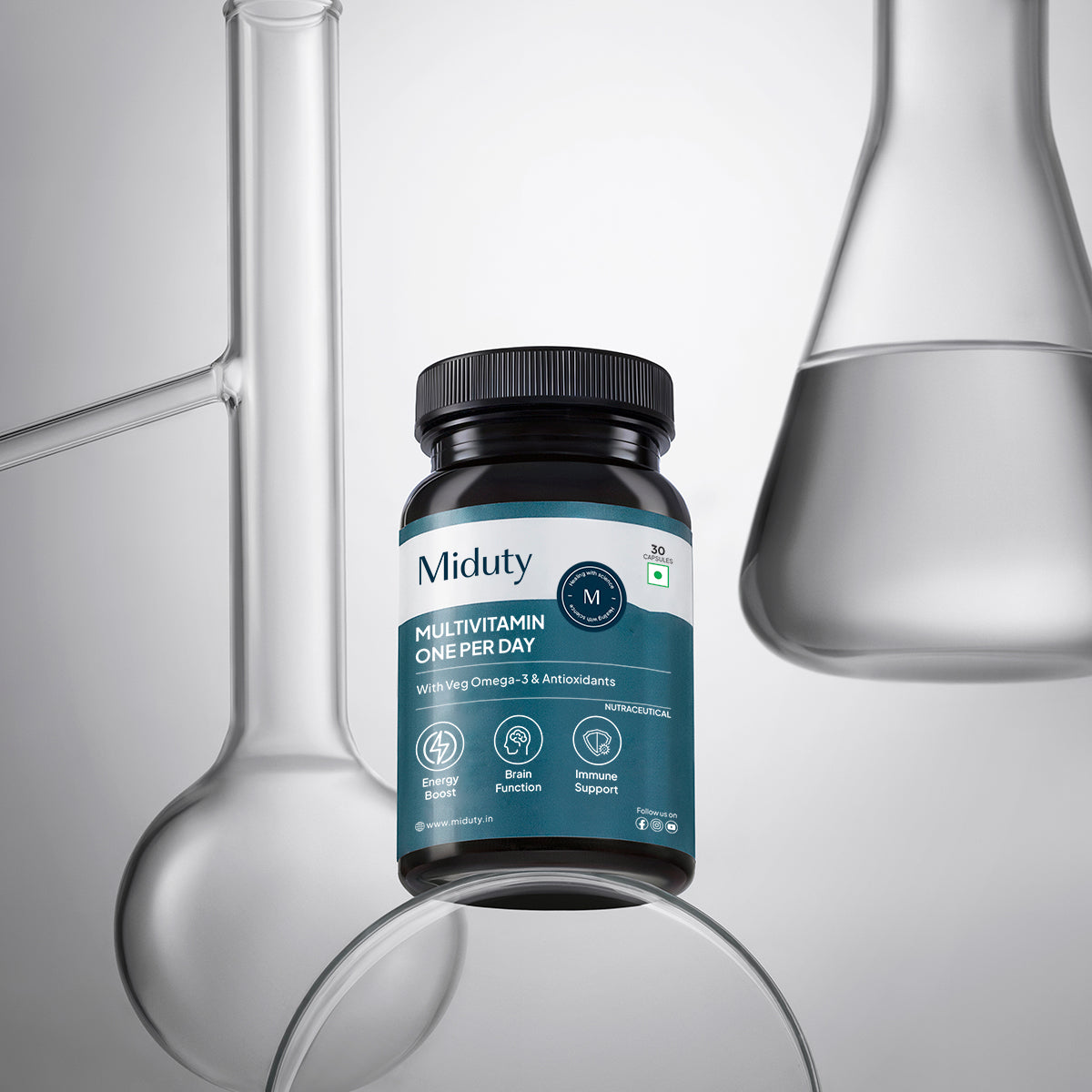
Apple Cider Vinegar For Hair: Uses, Benefits and How To Use?
Why is everyone and their neighbor suddenly raving about apple cider vinegar rinses and DIY ACV scalp treatments? Because of its Simplicity and great results.
Why is ACV Trending in Hair Care? In a time where clean beauty and natural ingredients are trending harder than ever, ACV fits right in. It's budget-friendly, chemical-free, and multi-functional. Whether you're dealing with greasy roots, a dry scalp, or dull strands, ACV could be your next miracle in a bottle. Plus, ACV appeals to our growing desire to ditch chemical-heavy products. Most shampoos are packed with sulfates and parabens that can strip the hair of natural oils.
ACV offers a gentler alternative, giving you that clean, balanced scalp without the dryness or irritation. Its acidic nature aligns closely with the natural pH of our scalp, making it the perfect ally for balanced, healthy hair.
Key Takeaways
1. ACV Restores Your Scalp's Natural pH: Most shampoos disrupt your scalp's ideal pH (4.5-5.5), causing dryness, frizz, and irritation. ACV's acidity (around pH 3) helps rebalance your scalp, smooths the hair cuticle, and enhances shine.
2. Antifungal and Antibacterial Properties: ACV can inhibit bacteria like E. coli and fungi such as Candida albicans and Malassezia, which are common causes of dandruff and scalp infections.
3. Proven Remedy for Dandruff and Itchy Scalp: 4% ACV solution significantly reduces fungal growth, helping clear flakes fast without harsh sulfates.
4. Helps Balance Sebum for Oily or Dry Scalps: ACV regulates your scalp's oil production, reducing grease without over-drying. This makes it a fantastic remedy for both oily roots and dry, flaky patches, restoring balance and reducing the need for frequent washing.
5. ACV Can Be Personalized for Maximum Results: Whether you have curly, straight, color-treated, or fine hair, ACV can be custom-blended with essential oils, aloe vera, or honey to match your exact needs.
What is Apple Cider Vinegar?
Apple cider vinegar, or ACV, is made by fermenting apple juice. This fermentation process transforms the natural sugars in apples into alcohol and then into acetic acid, the powerful active ingredient in vinegar. But ACV isn't just for your salad dressings anymore. ACV has become a household staple for wellness, and now it's gaining popularity in hair care too. It's a powerhouse of natural goodness loaded with enzymes, probiotics, and trace minerals that your hair loves.
The kind of ACV we're talking about here is raw, unfiltered, and contains the "mother," a colony of beneficial bacteria and yeast that gives it that cloudy appearance. It might not look pretty, but it's this unfiltered nature that makes it a goldmine for your hair and scalp.
Whether it was for clarifying the scalp, treating lice, or making hair shinier, ACV has been trusted across generations. In today's beauty world, where products often contain harsh chemicals, ACV stands out as a simple, natural, and effective solution for restoring hair health.
Nutritional and Chemical Composition of ACV
ACV might look like a simple vinegar, but chemically, it's quite the powerhouse. At its core, apple cider vinegar contains:
- Acetic Acid - Known for its antibacterial and antifungal properties.
- Potassium - Helps in hair growth and follicle nourishment.
- Vitamin C - Supports collagen production for healthier hair strands.
- B Vitamins - Encourage stronger hair and repair damage.
- Polyphenols - These antioxidants protect hair from environmental damage.
Each of these nutrients plays a unique role in hair health. For example, potassium supports hair growth by strengthening the roots and maintaining proper circulation. Vitamin C helps in repairing damaged follicles, while B vitamins promote cell regeneration and hydration.
Together, they create a balanced effect that enhances hair health from root to tip. It's like feeding your scalp goodness of nutrients, but from the outside in.
How Does Apple Cider Vinegar Benefits for Hair?
Is apple cider vinegar good for hair? Yes, apple cider vinegar is great for hair health, and it offers a lot of benefits for your scalp health and hair growth, and cleansing. Packed with vitamins, acetic acids, and antioxidants, it helps balance scalp pH, reduce dandruff, and add shine, making your hair look healthier and more vibrant.
1. Understanding the pH of Hair and Scalp
Your hair and scalp have a natural pH of around 4.5 to 5.5 slightly acidic. This acidity helps keep the cuticle layer of the hair flat and closed, protecting it from environmental damage, frizz, and moisture loss. Unfortunately, many hair care products are alkaline, which lifts the cuticle, results in moisture loss, and your strands become rough, dry, and more prone to breakage.
Apple cider vinegar, with a pH around 3, can help restore that delicate balance. When used properly, it flattens the hair cuticle, enhances shine, and strengthens strands from root to tip. Shampoos with a pH above 5.5 increase the negative electrical charge on the hair fiber surface, leading to greater friction between strands, raised cuticles, increased porosity, and a higher risk of breakage and frizz.
A balanced pH isn't just about how your hair looks; it impacts how it feels, how well it grows, and how much it sheds. This is why ACV rinses often leave hair looking glossier and feeling softer after just one use. It clears away the gunk without disrupting your natural oil production and brings your hair environment back to homeostasis.
ACV has shown the ability to disrupt biofilms from Bacillus cereus, at concentrations from 20% to 100%, implying a potential to break down microbial films on the scalp.
2. Antibacterial and Antifungal Properties of ACV
ACV is packed with acetic acid, which doesn't just help with pH balance, it's also a natural antimicrobial. That means it can kill or inhibit the growth of bacteria and fungi on your scalp. If you've ever dealt with persistent itching, flaky patches, or fungal issues, ACV might be the natural solution you've been missing. Its antimicrobial nature means fewer breakouts, less irritation, and a healthier surface for your hair to grow from.
This is especially helpful for those dealing with dandruff or scalp infections. A healthier scalp means better hair growth and less irritation. Plus, by keeping bacterial growth in check, ACV minimizes the chances of clogged follicles and scalp acne.
It's like giving your scalp a gentle, yet effective detox without the harsh chemicals.
A 2018 Sci Rep study demonstrated ACV's antimicrobial potential which inhibited E. coli at 0.1% acetic acid (1:50 dilution), S. aureus at 2.5% (1:2 dilution), C. albicans required 5% (undiluted)
3. Fights Dandruff and Itchy Scalp
The part nobody likes to deal with is dandruff. Those little white flakes can be super frustrating and embarrassing. But yes, Apple cider vinegar is one of the best natural remedies out there to fight dandruff and soothe an itchy scalp.
Why does it work so well? For starters, dandruff is often caused by a yeast-like fungus called Malassezia, which lives on the scalp. When this fungus grows out of control, it irritates the skin, leading to flaking and itching. ACV's antifungal properties target this imbalance, reducing the fungus and keeping your scalp healthy.
A study has shown that apple cider vinegar can help suppress the growth of Candida albicans, a common fungus. One study found that a 4% ACV solution had an effective minimum inhibitory concentration (MIC) of 2500 μg/ml.
Moreover, ACV helps exfoliate the scalp gently, loosening dead skin and buildup that contribute to flaking and allowing your scalp to breathe.
But don't stop at just one rinse. For chronic dandruff, try using an ACV rinse once or twice a week, and combine it with scalp massages to stimulate blood flow and promote healing. It's a safe alternative to harsh dandruff shampoos filled with sulfates and parabens that can do more harm than good in the long run.
A study of 123 international shampoo brands found that only about 38% had a pH of 5.5 or lower, which is ideal for scalp health. Most shampoos, nearly 62% had a higher pH. Among popular brands, just 34% had the right pH, while around 66% were above the recommended level.
4. Enhances Hair Shine and Smoothness
Dull hair? Well, one of the most beloved effects of apple cider vinegar is the way it revives shine and smoothness. You know that glossy, healthy hair glow you see in shampoo ads? That's what a well-balanced hair cuticle looks like, and ACV helps you get there.
When your hair cuticle lies flat, it reflects light better. ACV smooths out the hair shaft by closing the cuticle, which not only reduces frizz but also adds a noticeable shine to your strands.
Regular use of ACV as a hair rinse can help eliminate dullness caused by product residue, hard water minerals, and environmental stress. Unlike silicone-heavy products that provide a fake shine, ACV works by restoring your hair's natural luster.
To maximize results, follow up your ACV rinse with a lightweight conditioner or a few drops of nourishing oil like argan or jojoba to lock in moisture.
5. Reducing Frizz and Detangling Hair
If you've ever battled with a brush while trying to work through a head full of tangles, you know the pain of unruly, frizzy hair. Apple cider vinegar could be the fix you didn't know you needed. Its low pH helps to smooth the hair cuticle, reducing the raised, rough texture that causes tangles and frizz.
When the cuticle layer of the hair is lying flat, strands don't snag against each other, making brushing and styling way easier. Plus, frizz is often a sign that your hair is too alkaline or lacking moisture; two things ACV can help with. It restores the acid mantle and traps moisture where it belongs: inside your hair shaft.
ACV also removes residue from styling products, which can weigh down hair and cause more frizz. After a few uses, you'll notice your hair is not only easier to comb through but also feels lighter, smoother, and more manageable. Think of it as nature's detangler with extra shine as a bonus.
6. Balances Sebum Production
Ever feel like your hair is too greasy one day and dry the next? That's likely a sign that your scalp's oil production is out of whack. Luckily, apple cider vinegar is a pro at bringing your scalp's sebum (natural oil) levels back into harmony.
Your scalp produces sebum to keep your hair and skin hydrated. But when it produces too much, you end up with oily roots and limp hair. When it produces too little, your scalp gets dry and flaky. ACV steps in to restore balance by regulating oil production and cleansing without stripping.
Its astringent properties help tone the scalp and reduce excess oil, making it a great option for people with oily hair. Using ACV consistently can help reduce the frequency of hair washes since your scalp will gradually stop overproducing oil.
Less washing = less stripping = happier scalp.
7. Strengthens Hair Follicles and Promotes Growth
Hair fall is a common concern, and while no product can make your hair grow overnight, apple cider vinegar helps create the right environment for stronger, healthier growth.
When your scalp is clean, balanced, and free of buildup, your hair follicles have a better chance of staying rooted and growing strong. ACV increases blood circulation to the scalp, delivering essential nutrients and oxygen to your follicles. It also helps unclog follicles blocked by oil or dead skin, a common culprit behind stunted hair growth. And due to its anti-inflammatory properties, ACV reduces the kind of low-grade inflammation that can lead to thinning over time.
Pair ACV use with a healthy diet and proper scalp massage, making it a fine addition to your hair growth strategy, and you'll likely notice less shedding and more volume over time.
A 2022 study created a nanoemulsion using ACV, garlic oil, and minoxidil to treat alopecia areata. This combination boosted minoxidil absorption by about 3.3 times (from 12.7% to 41.6%), suggesting that ACV may enhance the effectiveness of other hair treatments.
How to Use Apple Cider Vinegar for Hair?
1. Choosing the Right Type of ACV
Not all apple cider vinegar is created equal. If you're serious about using it for haircare, always go for raw, unfiltered, and organic apple cider vinegar with the "mother." The "mother" is the cloudy, stringy substance you see at the bottom of the bottle; it's full of proteins, enzymes, and beneficial bacteria. Filtered versions might look more appealing, but they're stripped of most nutrients during processing.
If possible, look for ACV that's certified organic to avoid added chemicals or preservatives. And remember, apple cider vinegar is potent. Never use it straight on your scalp or hair without diluting it first. That brings us to the next step.
2. Creating the Perfect ACV Hair Rinse
Making your own apple cider vinegar rinse is super easy and requires just two ingredients: ACV and water. But proportions matter.
Here's a simple formula to start with:
- For oily or thick hair: 1 part ACV to 2 parts water
- For fine or dry hair: 1 part ACV to 4-5 parts water
- For scalp treatment: 1 tbsp ACV in 1 cup water with essential oils
If you have sensitive skin or a dry scalp, start with a more diluted version, like 1:5 ratio. As your scalp adjusts, you can modify the strength. Add a few drops of essential oils like lavender, tea tree, or peppermint for added benefits and a more pleasant scent (optional).
How to apply:
- Shampoo your hair as usual (you can skip conditioner for now).
- Pour the ACV rinse over your scalp and hair slowly.
- Massage it in gently and leave it on for 2-5 minutes.
- Rinse thoroughly with cool water.
You'll immediately feel a difference in softness and smoothness. Over time, you'll notice less buildup, more shine, and a healthier scalp.
3. How Often Should You Use Apple Cider Vinegar?
Like any treatment, moderation is key. While apple cider vinegar is amazing, overuse can dry out your scalp or alter your hair's texture, especially if your strands are already fine or brittle.
For most hair types:
- Once a week is ideal to start.
- For oily or dandruff-prone scalps, you can increase to 2 times a week.
- If your hair is dry or color-treated, once every two weeks is safer.
If your hair starts to feel dry or straw-like, reduce the frequency or dilute the mixture more. And never replace shampoo with ACV entirely; it's a complementary treatment, not a cleanser. You can also alternate it with deep conditioners for natural hair masks to maintain a balance between cleansing and hydration.
Potential Side Effects and Precautions
Apple cider vinegar can be a great natural remedy for hair, but improper use can lead to irritation, dryness, or even damage. Here's how to stay safe while reaping the benefits:
Can ACV Damage Hair?
Yes, it can; if used incorrectly. Here's what to watch out for:
- Highly acidic: ACV has a pH around 3, which can disrupt your scalp's natural pH if applied undiluted or too frequently.
- Sensitive scalp issues: It may cause tingling, burning, or redness, especially if you have a sensitive scalp.
- Dryness in certain hair types: Curly, coarse, or already dry hair may become more brittle with frequent ACV use.
- Product interactions: If you're already using other acidic or clarifying products, ACV can compound the effects and harm your hair.
To prevent damage:
- Always dilute ACV before applying (start with 1:5 or 1:6 ratio of ACV to water).
- Do a patch test before full application.
- Limit use to no more than twice a week.
- Always follow up with a moisturizing conditioner or leave-in treatment.
- Leave the solution on for no more than 5 minutes.
- Rinse with cool water as hot water as it may worsen irritation.
- People with eczema or psoriasis on the scalp should avoid it as it may cause stinging or worsening of symptoms.
- Avoid using ACV on broken or irritated skin as it can sting and aggravate these areas.
- Add soothing ingredients like aloe vera gel, chamomile tea, or nourishing oils (coconut, argan) to buffer the acidity.
Conclusion
Apple cider vinegar is more than just a kitchen staple; it's a haircare hero for those seeking a natural, effective solution to scalp and strand issues. Whether you're struggling with dandruff, dullness, oiliness, or just looking to simplify your hair routine, ACV offers a refreshing, low-cost, and science-backed option.
Its ability to restore pH balance, remove buildup, enhance shine, and soothe irritation makes it a worthy addition to any hair care routine. But like all good things, it should be used in moderation, and tailored to your specific hair type and needs.
If you're new to ACV, start small; one rinse a week with a well-diluted mix and pay attention to how your hair responds. Chances are, your hair will thank you with added shine, improved texture, and a cleaner, happier scalp.
Frequently Asked Questions on Apple Cider Vinegar For Hair -
Q1. Is applying apple cider vinegar good for hair?
Applying undiluted apple cider vinegar directly to your scalp or hair is usually not advisable. Its high acidity can lead to irritation, burning sensations, or excessive dryness. To safely benefit from it, always dilute apple cider vinegar with water before use.
Q2. What are the disadvantages of vinegar on hair?
Using vinegar on hair, especially without dilution, can cause scalp irritation, dryness, and hair breakage by stripping natural oils. It's important to dilute ACV with water and test it on a small area of skin first to minimize potential risks.
Q3. Can apple cider vinegar stop hair loss?
Apple cider vinegar (ACV) may support overall hair health by enhancing shine and improving scalp conditions, but it isn't a scientifically proven solution for hair loss. It might reduce hair shedding by maintaining a healthy scalp, though it shouldn't replace medical treatments for hair loss.
Q4. How long to leave apple cider vinegar in hair?
For a typical apple cider vinegar (ACV) hair rinse, it's best to leave the diluted mixture on your hair for about 5 to 10 minutes. While some people keep it on for up to 15 minutes, starting with a shorter time helps you see how your hair and scalp respond. If you feel any stinging or discomfort, rinse it off right away.
Q5. Does apple cider vinegar remove dandruff?
Yes, apple cider vinegar (ACV) may help reduce dandruff thanks to its natural antifungal and antimicrobial qualities. It can assist in balancing the scalp's pH, easing irritation, and minimizing flakes. However, scientific evidence is limited, and it might not work for everyone as a standalone treatment.
References


